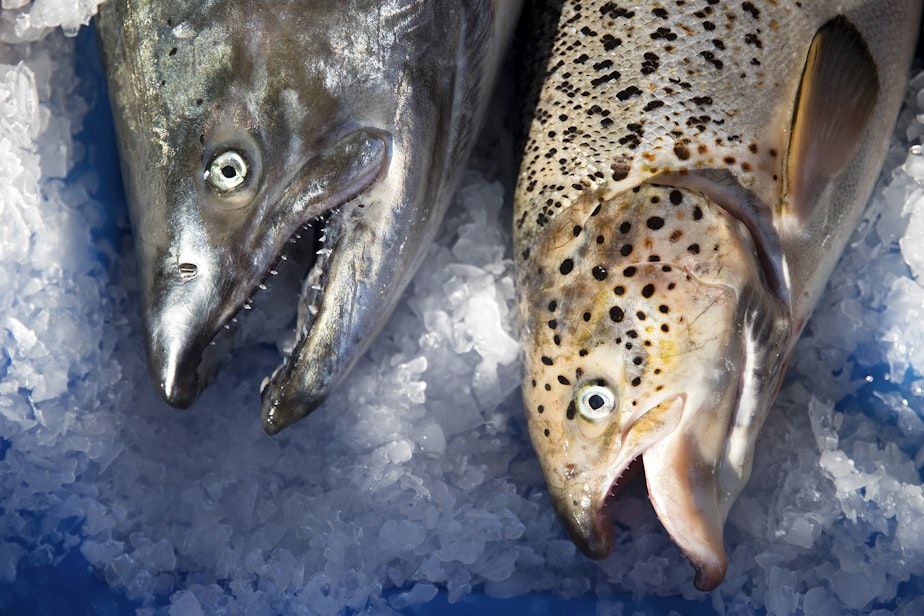Atlantic salmon farms banned, 7 months after great fish escape

Atlantic salmon farming has been banned from Washington state waters.
Gov. Jay Inslee signed the ban on non-native fish farms into law Thursday morning in Olympia.
“These present a risk to our wild salmon runs that we cannot tolerate,” Inslee said.
The move comes eight months after an ill-fated fish farm near Anacortes started to come undone in a strong current on an otherwise calm summer day. The floating farm, owned by New Brunswick, Canada-based Cooke Aquaculture, tore apart a month later, letting as many as 250,000 Atlantic salmon escape into Puget Sound.
While legislators included a provision stating that the legislature would research and revisit the issue as new science became available, Inslee vetoed that section, bringing what appears to be a decisive end to at least three decades of Atlantic salmon farming in Puget Sound.
Opposition to the farms grew after one of Cooke Aquaculture's three net pens off Cypress Island imploded in August. Fish from another ocean quickly swam north into Canada, south past Tacoma and up several rivers, raising fears among tribes and environmentalists that the invaders could harm the region's struggling runs of wild, Pacific salmon.
While officials and early media accounts blamed a solar eclipse for the collapse, state investigators later concluded that the farm's poor condition — corroded and overgrown with tons of mussels and other sea life — made it more vulnerable to the push of tidal currents that arrive like clockwork in Puget Sound.
The state's remaining Atlantic salmon farms, all owned by Cooke, could be gone by 2022, once their existing leases with the Washington Department of Natural Resources expire.
The controversy over these fish might not be over. Earlier this year, Cooke, which raises salmon on three continents, threatened to sue under the North American Free Trade Agreement if Washington officials tried to curtail its operations here.
On March 15, initiative promoter Tim Eyman filed two ballot referendums aimed at blocking the salmon-farm ban on Atlantic salmon farms. The anti-tax crusader would need about 130,000 signatures to get either of them on the statewide ballot in November.
Eyman declined to say why he filed them or on whose behalf.
"I’m not authorized to speak on this yet," Eyman emailed on Thursday.
"We have no affiliation with this individual or his initiative nor is this a direction we are taking," Cooke spokesperson Joel Richardson emailed Wednesday night.
“Our company and our rural sea farming employees are deeply disappointed by the Governor’s decision to ignore the science and sign the bill,” Richardson said in an email after the signing. He said the company was evaluating all available options.
Correction 3/23/2018: Headline had incorrect number of months.

